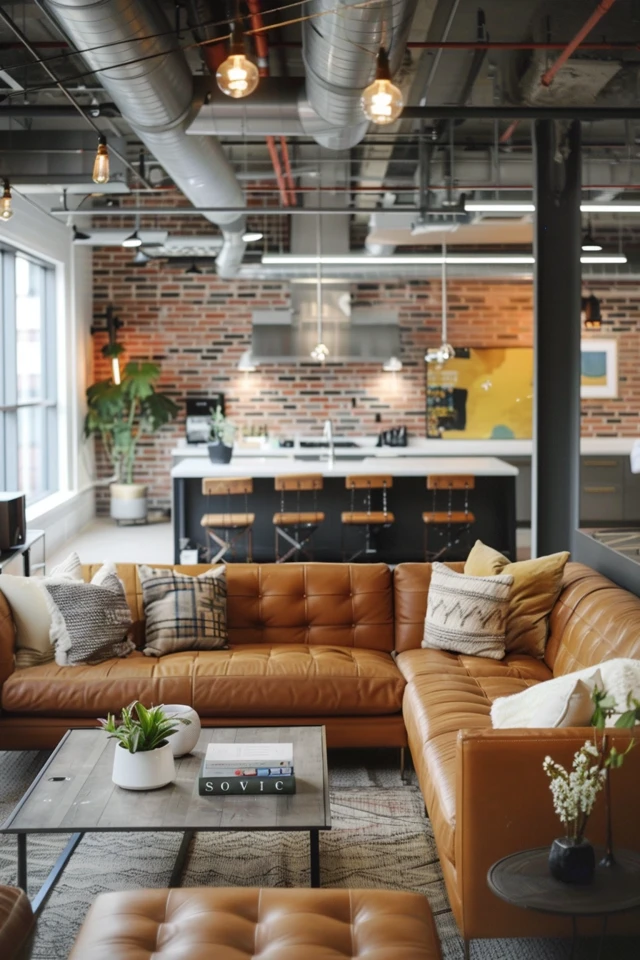An effective layout is essential for upgrading your basement. Whether you’re redoing it or starting anew, a good plan improves both its use and look.
To make your basement layout meet your needs and feel welcoming, follow these five key tips:
1. Define the Purpose of Your Basement
First, think about what you want from your basement. Do you want a cozy spot, an office, or a space for different activities? Knowing this helps you design a layout that fits your life.
2. Take Accurate Measurements
Knowing your basement’s size is key. Measure the space well, noting windows, columns, or beams. This info helps you plan your basement layout correctly.

3. Create a Basement Floor Plan
Planning can be tricky, but room planning software can make it simpler. By trying different layouts, you’ll see what works best. A good plan looks at how people move around, uses space well, and includes storage.
4. Split Your Basement into Functional Zones
Dividing your basement into areas for specific activities makes the space work better. Think about having different spots for cooking, eating, working, having fun, or sleeping. This makes the basement more organized and easier to use.
5. Factor in Storage Needs and Keep the Layout Open
Don’t forget about storage in your basement. Add shelves, cabinets, or storage units to keep things tidy. Choose an open layout for easier movement and a spacious feel.

Key Takeaways:
- A smart layout is important for a basement’s usefulness and look.
- Figure out your basement’s purpose before planning.
- Measure your basement accurately for a good layout.
- Use software to try out different floor plans.
- Organize your basement into zones for better use.
- Include storage and aim for an open layout to keep it comfortable.
Different Uses for a Finished Basement
A finished basement can turn into many things. You can use it to entertain, relax, or follow your hobbies. Let’s look at some great ways to use a finished basement.
Games Room
Many love turning their basement into a games room. You can have a pool table, foosball, or even arcade machines. This makes for a perfect spot for fun with friends and family.
“A games room in the basement is a fantastic way to bring people together and create lasting memories.” – Remodeling Magazine
Wine Cellar
For wine lovers, a basement wine cellar is perfect. The cool basement is ideal for storing and showing off your wine.
Library
Book lovers will enjoy a cozy library downstairs. There’s enough space for all your books. It’s a quiet place for reading and chilling.
Workshop
A basement can be a great workshop. It’s for those who love hobbies like woodworking or crafts. Here, you can work on your projects and be creative.
Home Gym
Want your gym at home? The basement is the spot. With the right floor, gear, and air, it becomes your private fitness place.
Think about the layout, light, and where to put things. Planning helps make your basement meet your needs. Whether it’s for games, wine, reading, making things, or working out, a well-done basement adds to your home’s worth and use.
Design Tips for Basement Layouts
Designing your basement? Think about a few key points. Consider lighting, materials, colors, and layout to make the space work. Avoid common mistakes to turn your basement into a welcoming area. It will boost your home’s value too.
Lighting options: Good lighting is vital, especially in basements with little natural light. Recessed LEDs are a top choice. They use minimal space, save energy, and brighten the area well. Add wall sconces and lamps for layered lighting and ambiance.
Materials: Basements face moisture, so pick the right materials. Use tiles, vinyl, or marine plywood for floors and walls. These materials resist humidity well, keeping your basement in good shape.
Color schemes: Choosing the right colors can change how your basement feels. Go for neutrals like whites, grays, and light browns. They make the space feel open and inviting.
Common layout mistakes to avoid: Avoid making the space feel tight. Don’t box in rooms or block airflow. Be careful not to change structural elements without expert advice. This could damage your home’s structure. Plan for your electrical, plumbing, and storage from the start. Always talk to pros when you need to.
These design tips can help you make a stunning basement. It’s more than just looks; it should meet your family’s needs. Use design tools and talk to experts. They can help you see different layouts, figure out costs, and make sure your renovation goes well.

